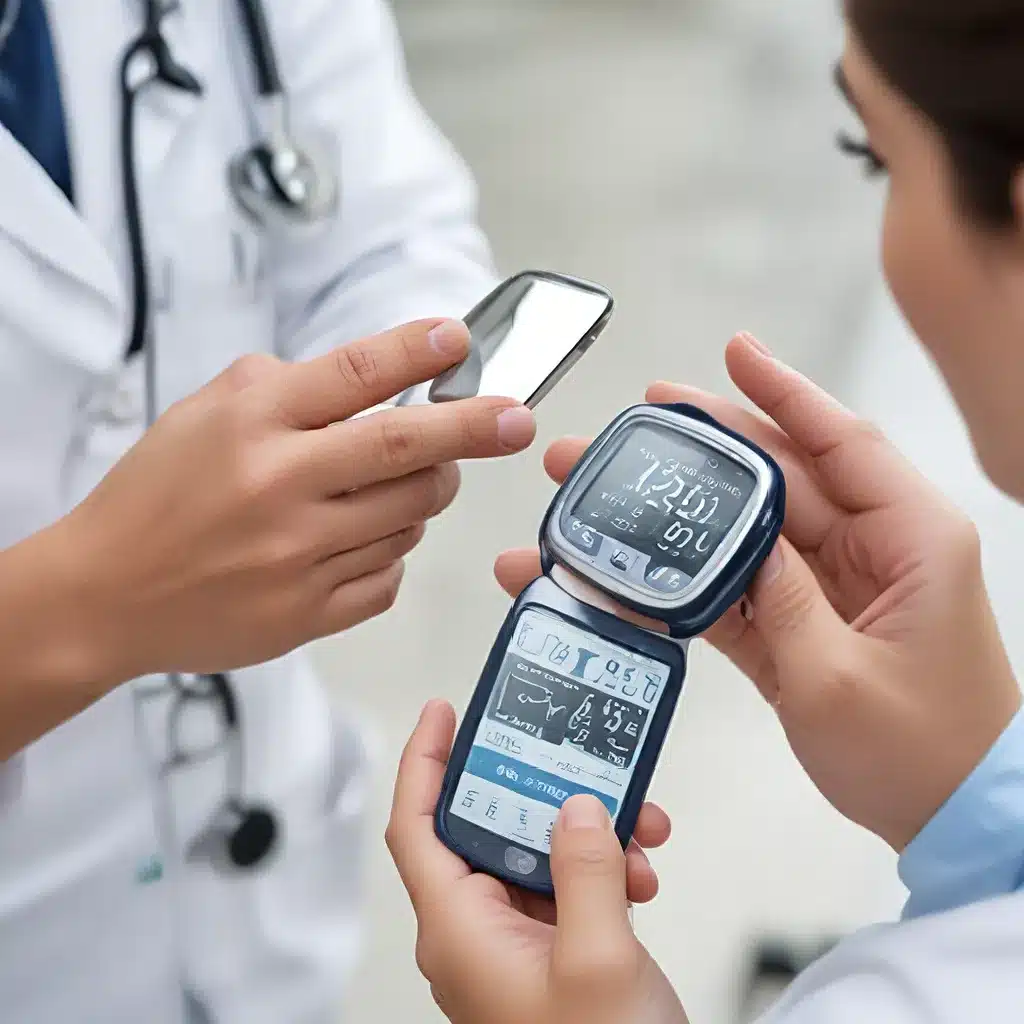
In the ever-evolving landscape of healthcare, sensor networks and Internet of Things (IoT) technologies are emerging as game-changers, transforming the way we approach patient monitoring and care delivery. These advancements are not only improving the quality of care but also enhancing patient outcomes and optimizing healthcare resource utilization.
Enhancing Patient Monitoring with Sensor Networks
At the heart of this revolution are sensor networks, which are enabling a more comprehensive and continuous monitoring of patient health. These interconnected arrays of sensors, strategically placed within healthcare facilities or on the patient’s body, collect a wealth of real-time data, including vital signs, biometrics, and even environmental factors. This data is then seamlessly transmitted to healthcare providers, allowing for early detection of potential health issues and timely intervention.
One of the key benefits of sensor networks in healthcare is their ability to reduce hospital readmissions. By closely monitoring patients, both during and after their hospital stays, healthcare providers can identify potential complications or deterioration in a patient’s condition, triggering immediate action and preventing unnecessary readmissions. This not only improves patient outcomes but also reduces the financial burden on the healthcare system.
Moreover, sensor networks are revolutionizing the way we manage chronic diseases. Wearable devices equipped with various sensors can continuously track a patient’s vital signs, medication adherence, and activity levels, providing healthcare providers with a comprehensive view of the patient’s condition. This data-driven approach enables more personalized treatment plans and allows for proactive management of chronic conditions, reducing the need for frequent hospital visits and empowering patients to take a more active role in their own healthcare.
Leveraging IoT for Improved Care Delivery
Alongside sensor networks, the Internet of Things (IoT) is also revolutionizing healthcare delivery. IoT-enabled devices, ranging from smart infusion pumps to remote patient monitoring systems, are streamlining patient care and improving efficiency within healthcare facilities.
One of the primary applications of IoT in healthcare is automated medication management. IoT-enabled smart pill bottles and medication dispensers can track patient adherence, remind patients to take their medications, and even automatically refill prescriptions when necessary. This not only enhances medication compliance but also reduces the risk of adverse drug events and prescription errors.
Furthermore, IoT-enabled telemedicine solutions are enabling healthcare providers to remotely monitor and treat patients, especially those residing in rural or underserved areas. Through secure video consultations, remote vital sign monitoring, and virtual care coordination, patients can receive high-quality care without the need for frequent in-person visits, improving access to healthcare and reducing the burden on healthcare facilities.
Addressing the Challenges of Sensor Networks and IoT in Healthcare
While the benefits of sensor networks and IoT in healthcare are undeniable, there are also significant challenges that must be addressed to ensure the security, privacy, and reliability of these technologies.
Security is a critical concern, as these interconnected systems are vulnerable to cyber threats, such as data breaches and malware attacks. Robust encryption protocols, access controls, and comprehensive security policies are essential to protect patient data and safeguard the integrity of the healthcare system.
The security and privacy of patient data is also a paramount consideration, as the sensitive nature of healthcare information requires stringent data protection measures. Compliance with regulatory frameworks, such as the Health Insurance Portability and Accountability Act (HIPAA), is crucial to ensure the confidentiality and privacy of patient records.
Another key challenge is the energy management of sensor networks and IoT devices within healthcare settings. These devices often have limited power sources, and their continuous operation can place a significant strain on the energy grid. Advancements in energy-efficient hardware and power-saving algorithms are crucial to reduce the environmental impact and operational costs associated with these technologies.
The Future of Sensor-Based Healthcare
As the healthcare industry continues to embrace the transformative potential of sensor networks and IoT, we can expect to see even more innovative applications and advancements in the years to come.
Predictive analytics, enabled by the wealth of data collected through sensor networks, will play a pivotal role in early disease detection and personalized treatment planning. By leveraging machine learning algorithms, healthcare providers will be able to identify patterns and trends in patient data, empowering them to make more informed decisions and deliver proactive, individualized care.
Furthermore, the integration of sensor networks and IoT with artificial intelligence (AI) and robotics will open up new frontiers in healthcare. Automated systems capable of real-time data analysis and autonomous decision-making will enhance the efficiency and responsiveness of healthcare delivery, ultimately leading to improved patient outcomes and reduced healthcare costs.
Sensor-Networks.org is at the forefront of these advancements, providing a comprehensive platform for researchers, healthcare professionals, and industry leaders to collaborate, share knowledge, and drive the future of sensor-based healthcare innovations.
As we continue to explore the transformative potential of sensor networks and IoT in healthcare, we can expect to witness a future where patient monitoring and care delivery are seamlessly integrated, empowering healthcare providers to deliver personalized, proactive, and efficient care, ultimately leading to improved patient outcomes and a more sustainable healthcare system.